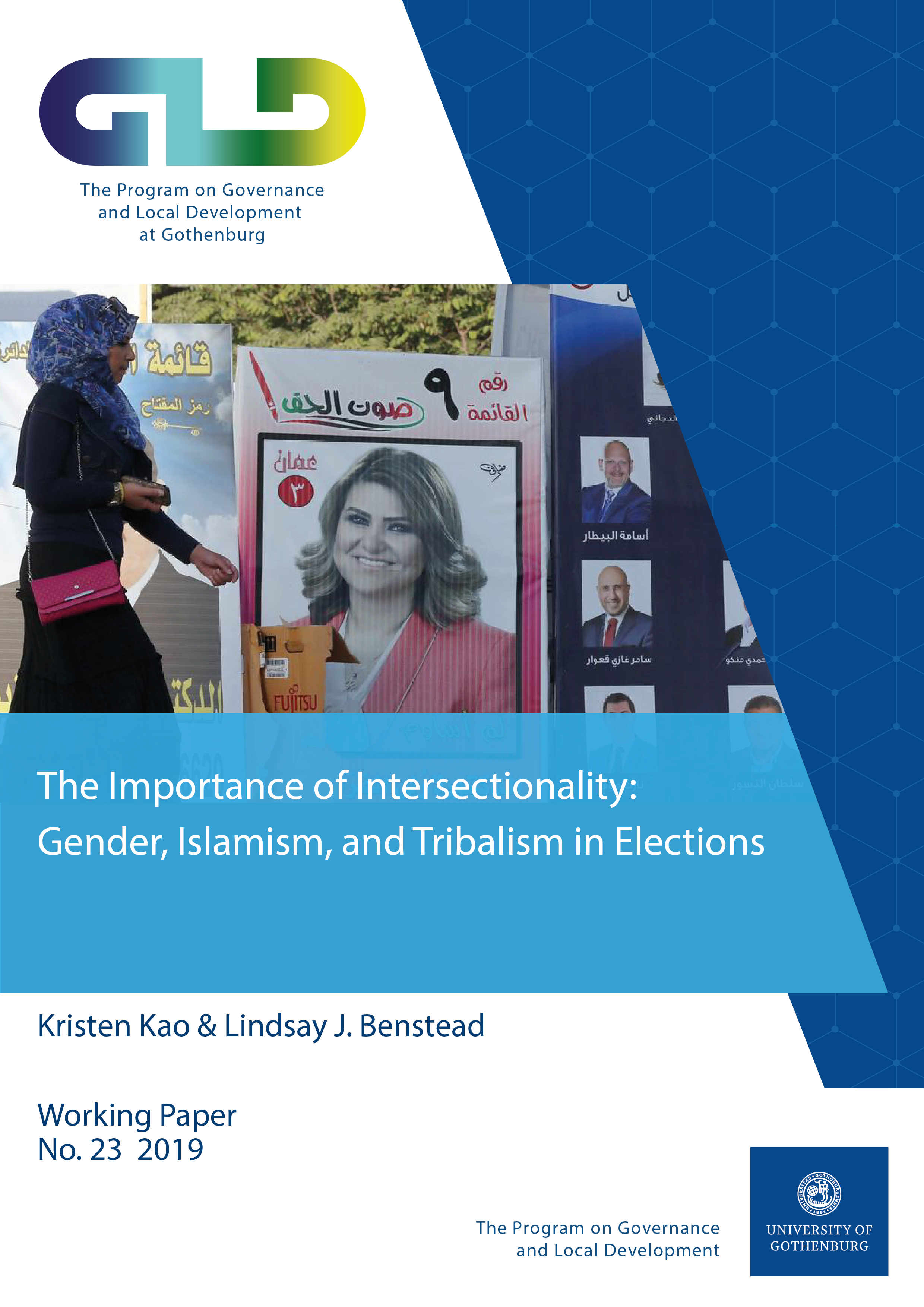No.23 The Importance of Intersectionality: Gender, Islamism, and Tribalism in Elections
Kristen Kao & Lindsay J. Benstead
Abstract
Many studies of electoral behavior and women’s electability in the developing world focus on single traits—e.g., religion, gender, and ethnicity. Yet, candidate identities affect electability intersectionally—i.e., identities are mutually constituted by social hierarchies, leading to complex, interactive effects—in ways that are underexplored in this existing literature. Using an original survey experiment conducted among 1,499 Jordanians, we examine the effects of multiple, intersecting candidate identities (i.e., gender, tribe, and Islamist party identification) on voter preferences. Respondents at random received statements about male or female candidates who were Islamists or co-tribalists and rated their likelihood of voting for each. We argue and show empirically that existing theories of electoral behavior cannot account for women’s electability without an approach that considers how social hierarchies intersectionally shape electability. We find that although less electable overall, female candidates fare as well as comparable males once intersectional identities are accounted for. Among some voters, women do better than men from similar groups. Our findings underscore the need to apply intersectionality to theories of electoral behavior in the developing world and lay the groundwork for a larger research agenda explaining women’s electability.
